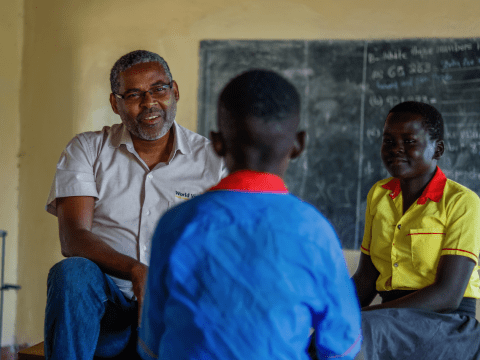World Humanitarian Day: Celebrating the heroes on the frontlines

By Dr. Mesfin Loha, World Vision South Sudan Country Programme Director
Responding to a crisis entails multilayered, interconnected processes to save lives and livelihoods. It involves local informants who first raise the alarm on an ongoing or impending crisis to the first providers of assistance. Every stakeholder's responsibility, executed timely, with acceptable standards, makes the difference.
Indeed, it takes a village, a commitment to individual responsibility, and joint accountability. It begins with local responders, volunteer men, and women of all ages.
The real heroes are local responders and volunteers who brave the difficult and risky terrains to reach the most affected populations. They are on the frontline, acting as multipliers of hope and goodwill. It takes us all to bring the best out of the millions of unsung heroes. It takes a village to ensure humanitarian aid workers operate free of impediments and limitations.
The future of humanitarian aid rests across the board, on local to global collaboration, like never before. With the increasing frequency and severity of natural and manmade crises, it is a hands-on deck approach that will enable the international community to support each other.
In all this, operations designed and led with conscious adherence to humanitarian principles must be the mainstay of crisis response.
To be successful, we need humanitarian workers with diverse experience across the spectrum of humanitarian response needs. This often requires a mix of local, national, and international expertise to work together.
World Humanitarian day celebrates people who dedicated their lives to serving people in need worldwide, often in the most fragile and high-risk environments.
On World Humanitarian Day 2022, the world needs to amplify humanitarian aid workers' voices for protection, access, and resources.
South Sudan remains one of the most dangerous places for humanitarian aid workers. It indeed takes a village to ensure they are not targets of hostilities.